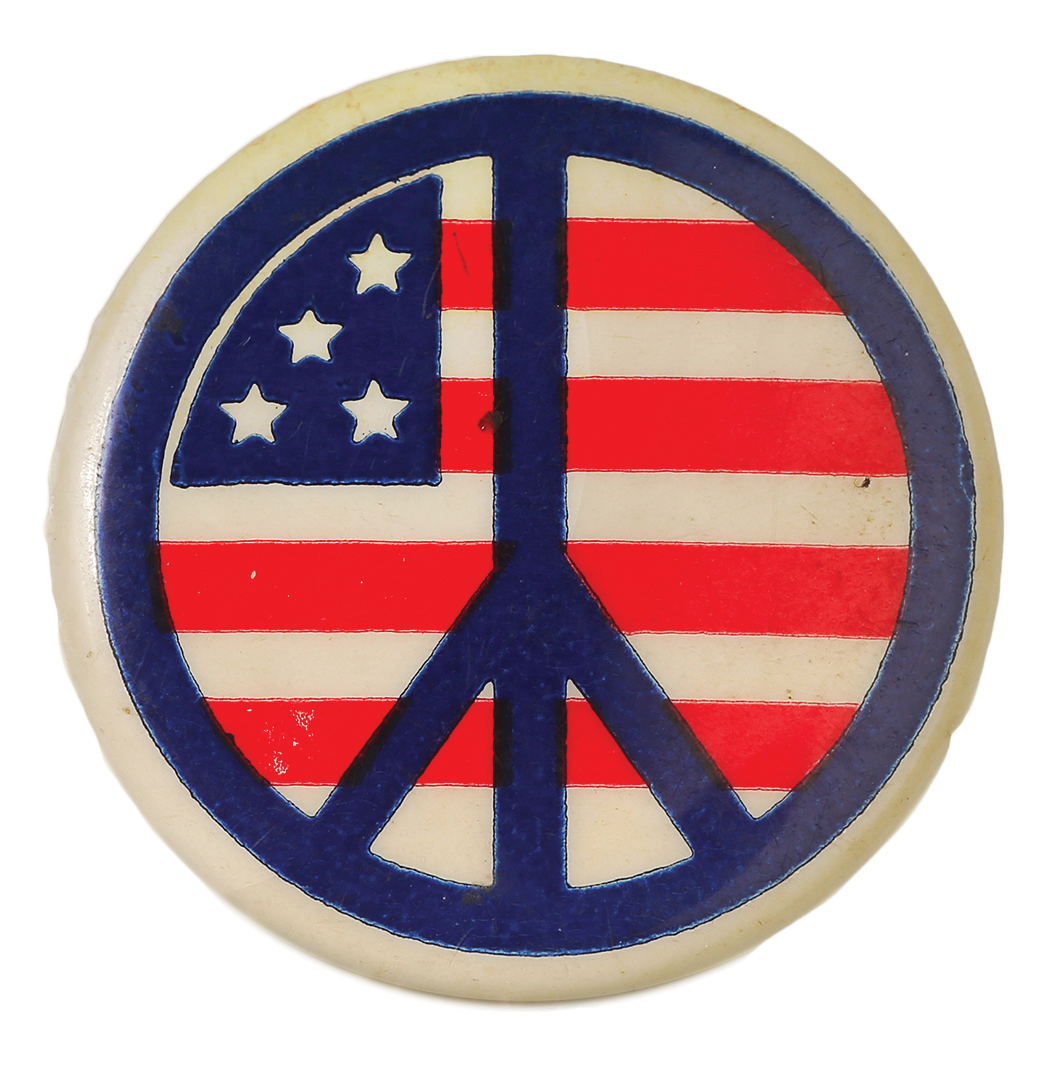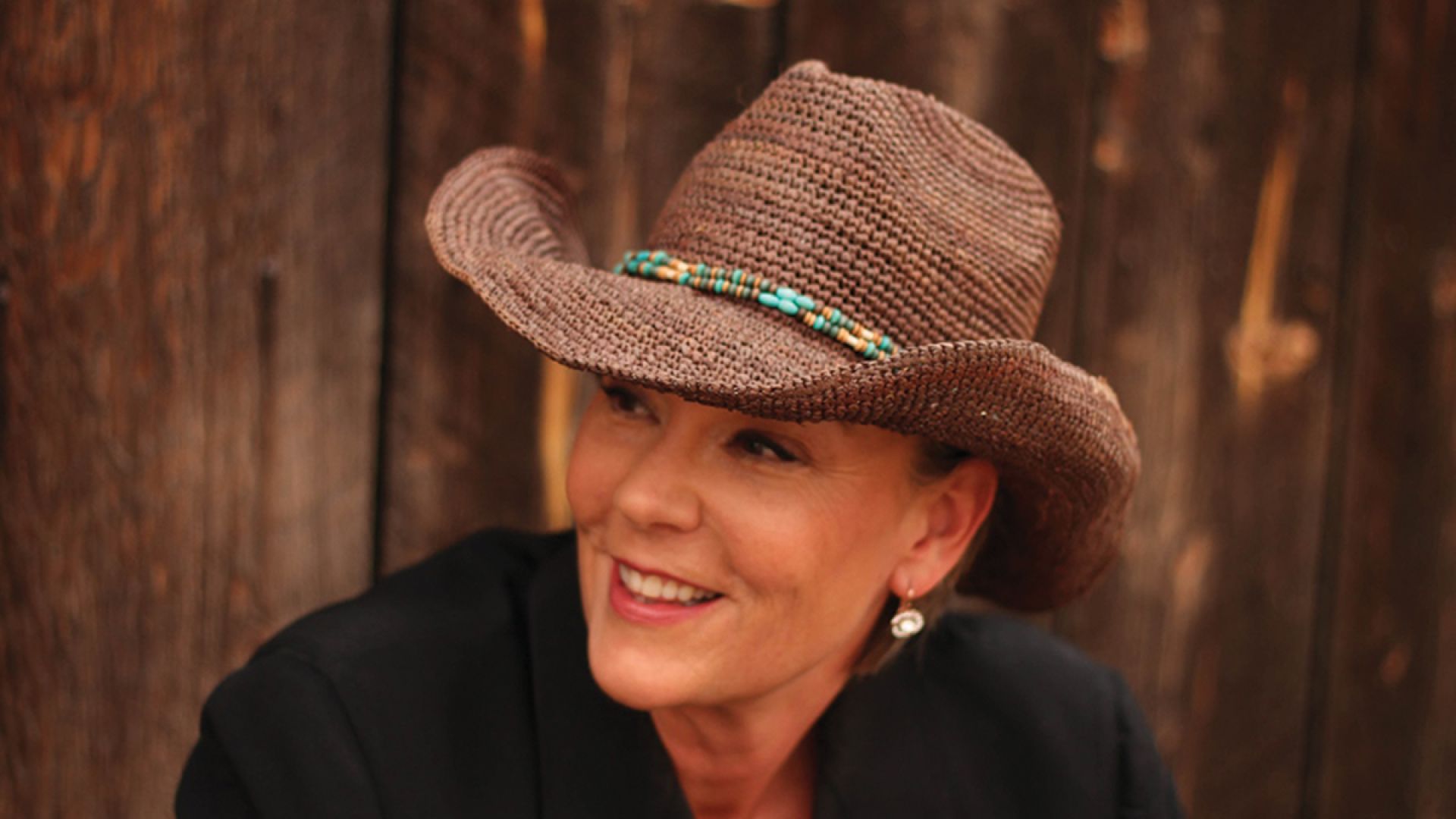Stacy Bannerman MFA '17 is dressed head-to-toe in red, white and blue.
Her Old Navy T-shirt is adorned with an American flag.
She doesn’t look like the stereotype of a peace activist. The political narrative often paints those who oppose the country’s War on Terror as anti-military, even anti-American.
That’s not Bannerman.
She knows more about military life than the vast majority of Americans, and she loves her country.
Enough to want it to do better.
When Bannerman MFA ’17 got engaged to her (now ex-) husband, she didn’t know he had served in the National Guard, so she was surprised when he wanted to rejoin — but the almost attainable retirement benefits looked good, and she supported his choice.
That was 2000, though, when serving in the Guard was a part-time responsibility, one most likely to result in activation in a natural disaster.
Bannerman never imagined that she would become a full-time military spouse; that she would live years with the racking anxiety that comes with a husband serving multiple deployments in the Middle East; that the man she loved would disappear, replaced by a different person, one consumed by post-traumatic stress, anger, and drug addiction.
“We’ve got to believe that the lives of our fellow citizens — and the lives of the people in whatever place we invade next — are precious. We’ve got to start conducting ourselves as though those lives matter.”
– Stacy Bannerman MFA '17
And, she never imagined that she would be left utterly alone through the experience.
“Less than 1 percent of this nation has been directly affected by the wars in Iraq and Afghanistan,” Bannerman wrote in her book, Homefront 911: How Families of Veterans are Wounded by Our Wars. “When America got the war it wanted in 2001, and again in 2003, I presumed the nation would go along. … But the efforts on the warfronts were not matched with any effort whatsoever to secure a homefront.”
In World War II, one out of every five American families had one or more members serving overseas at some point.
“During Vietnam, it was roughly one in 10. During the wars in Iraq and Afghanistan, America’s longest war, it has been fewer than one in 100.”
Where past wars came with rations, austerity, and the draft, the War on Terror came with a charge to keep the economy healthy — to go to Disney World and the mall.
“The imbalance in the burden of service and simultaneous abdication of civilian sacrifice has created an epidemic of disconnection between the civilian and military communities,” Bannerman wrote.
But people need to know, Bannerman said. They need to know what is happening, they need to know what their neighbors are experiencing, and they need to take action to demand policies that support both the troops who serve and their families.

Homefront 911 is Bannerman’s second book, written throughout her first year in Pacific University’s Master of Fine Arts in Writing Program. A mix of personal narrative and documented research, the book outlines the impact that the last decade-plus of war has had on the families of active duty military and veterans.
Mental health issues and suicide rates among military families are directly proportionate to those of military members and veterans, she writes.
She talks to dozens of other military families, sharing heart-rending stories that range from tales of domestic violence, to child suicide, to the loneliness that comes of being afraid to ask for help for fear of harming your spouse’s career and your family’s livelihood.
She details data — sometimes hard to come by — that paints a startling picture of the impact of war on military families. An example:
“Data collected in 2012 and 2013 as part of a study of secondary school students in California found that 21 percent of the military kids reported having a suicide plan and nearly 18 percent had attempted suicide,” she wrote. “By comparison, slightly more than 7 percent of civilian youth disclosed a suicide attempt during the same time.”
And, she points out the struggle of getting help for families.
“Since we’re not soldiers, there are no official military spouse-specific crisis hotlines, no 24-hour mental health clinics, no pre- or post-deployment mental health questionnaires,” she wrote. “The invisible injuries of the silent ranks are unnamed, unnoticed, and unofficial.”
In addition to her two books, Homefront 911 and its predecessor When the War Came Home, Bannerman has created a performance art piece, Homefront 911: Military Family Monologues, which was performed at the U.S. Capitol.
She has testified before Congress and advocated for federal and state legislation to support military families, including the Military Family Leave Act. She works with several organizations to help create additional resources for military families, and she speaks publicly to keep pushing the conversation to the forefront.
It’s her only recourse, she said.
Sitting in the University Center at Pacific, Bannerman said her own story only got worse after the publication of Homefront 911. Her husband’s psychological and criminal issues deepened, eventually ending their marriage.
“I lost every single thing I loved in my life,” she said. “I get contacted by groups who want me to talk, but they want a happy ending. There isn’t always a happy ending.”
So she tries to forgive.
“It wasn’t just me learning to forgive my beloved — and he will always be my beloved. I had to come to a place where I also had to forgive not just the government, but the people who wanted the government to wage a war based on lies. That was the hardest forgiveness,” she said. “I had to keep asking myself, ‘Didn’t I matter? Did my life not matter?’ My life was destroyed, and I’ll never get it back. I have an opportunity to forge a brand new one, but I will never get it back.”
So she keeps talking, and she keeps writing — trying to make sure that other lives matter.
“We are first, last and always human beings,” she said. “We’ve got to believe that the lives of our fellow citizens — and the lives of the people in whatever place we invade next — are precious. We’ve got to start conducting ourselves as though those lives matter.”
This story first appeared in the Summer 2016 issue of Pacific magazine.
